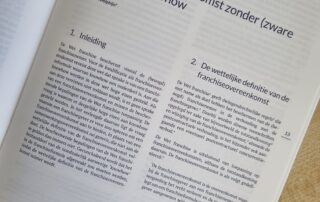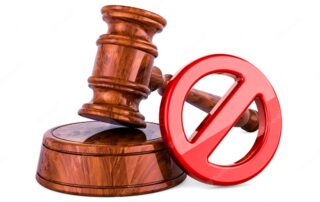Litigation costs order
There is often a misconception about the reimbursement of legal costs when considering starting a procedure, when one party is involved in a procedure by another, both for franchisors and franchisees. A frequently heard assumption is that if the proceedings are successful, the costs of the proceedings will be reimbursed by the losing party. In practice, however, this is different. It is the case that the civil court, but also arbitrators when it concerns arbitration proceedings, have the option of issuing an order for costs. They can do so, but are not obliged to do so. Many franchise agreements contain an arbitration clause, which prescribes arbitration instead of the ordinary court. If judges or arbitrators order a party to pay the costs of the proceedings, this will mean that the unsuccessful party will have to reimburse the costs of the proceedings to the successful party. However, this does not mean that all costs incurred by the winning party will have to be reimbursed by the losing party. This is because the court must assume fixed fixed compensation for acts of, for example, the lawyer engaged. Those determined costs are often only a fraction of the total costs incurred. This is different if experts have also spoken in the procedure. In many cases, the invoices of the experts will qualify for full reimbursement. These costs can often be high. For example, if an accountant had to draw up a report to further substantiate the damage, you can imagine that the bill is not small.
In addition, a fee is paid to the court, the so-called court fee, or, in the case of arbitration proceedings, a deposit to the arbitration committee. These costs are also taken into account in the order for costs. In particular, the fees for conducting arbitration proceedings are high.
All in all, when a party has been ruled against by a judge or arbitrator, the pain can be even harder if, in addition to the conviction, an order for costs is also pronounced against that party. The amounts may be large, even if they do not cover the full costs of the (winning) other party.
In short, the winning party may be reimbursed part of the costs incurred, but will generally not be reimbursed for all costs incurred. In particular, the costs of legal assistance are only reimbursed to a limited extent, leaving aside the fact that there is no compensation whatsoever for the own hours that the parties have put into the procedure.
However, it is up to the judge or arbitrator to order one of the parties to pay the costs of the proceedings. The judge or arbitrator may see reasons not to award an order for costs.
It is therefore a good idea to take the costs of the proceedings into account when considering whether or not to initiate proceedings. When deciding whether to litigate, it is therefore wise to include a cost-benefit analysis in which the costs of a procedure should not be underestimated, certainly not in relation to the order for costs. In some cases, these factors can even block franchisees from going to court. Franchisors will weigh up whether the costs of a procedure outweigh the (possible) benefits.
Ludwig & Van Dam franchise attorneys, franchise legal advice

Other messages
Car dealer wrongly not a franchisee?
The Franchise Act entered into force on 1 January ...
Suspension of payouts allowed by the franchisor
The District Court of Limburg ruled on 30 March 2023, ...
Franchising is on the rise: ‘There is still a huge amount of room for it in the Netherlands’
An interview with mr. AW Dolphijn about franchise. De Beren, ...
The franchise agreement without (heavy demands on) know-how
In the 2023-1 edition of Contracting magazine, I published a ...
Standstill period violation
On 15 March 2023, the District Court of Noord-Holland, ECLI:NL:RBNHO:2023:2636, ...
Violation post prohibition of competition, no fine!
The District Court of Zeeland-West-Brabant ruled on 15 March 2023, ...







